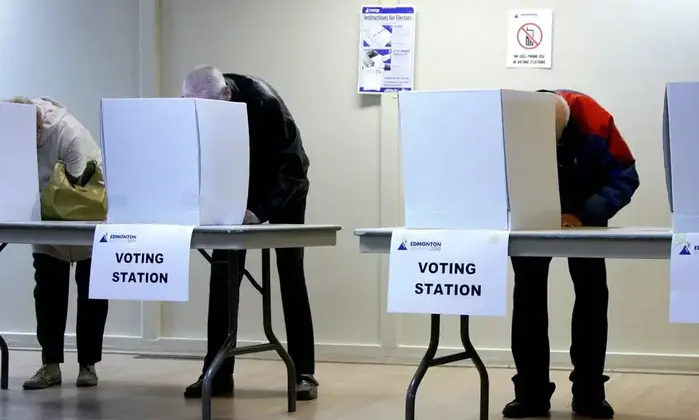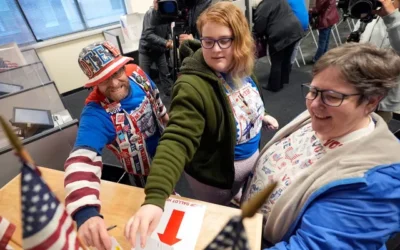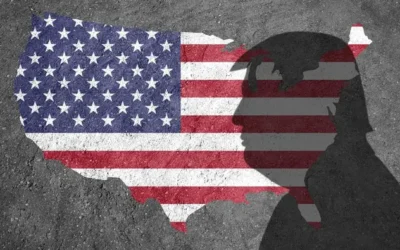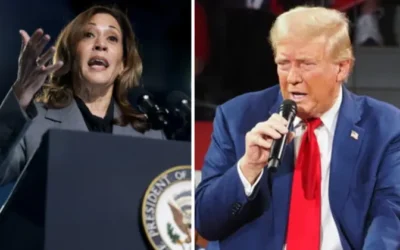The 2026 presidential election will have a significant impact on the housing market, influencing everything from home prices and interest rates to loan availability and affordability.
The direction of the economy, tax policies, and government intervention will vary depending on who wins—whether it’s Kamala Harris, representing progressive economic policies, or Donald Trump, promoting deregulation and a pro-business stance.
The stakes are high for both homebuyers and investors, as the outcome of the election could shape the housing landscape for years to come.
How Elections Impact the Housing Market
Presidential elections often bring uncertainty to financial markets, including the housing sector. Buyers, sellers, and investors tend to tread carefully in the months leading up to an election, waiting to see which candidate’s policies will shape the economy.
Key Election-Related Housing Market Impacts:
- Consumer Confidence: People may delay buying or selling until after the election due to market uncertainty.
- Interest Rate Adjustments: Financial institutions monitor election outcomes to predict economic policies that may influence the Federal Reserve’s decisions on interest rates.
- Investor Behavior: The real estate investment market fluctuates as investors adjust their strategies based on anticipated tax and regulatory changes.
Kamala Harris’s Housing Policies: What to Expect
Kamala Harris’s housing policies focus heavily on addressing inequality and closing the racial wealth gap. She has championed the idea of down-payment assistance for first-generation homebuyers, promoting the Downpayment Toward Equity Act, which proposes a $25,000 credit.
Potential Impact of Harris’s Policies
- Short-Term Impact: If implemented, the $25,000 credit may create more demand among first-time homebuyers, but this could drive prices higher in an already competitive market.
- Long-Term Impact: While the goal is to increase minority homeownership, rising demand could outpace supply, exacerbating housing shortages.
“Kamala Harris’s plan may increase accessibility for first-time buyers, but without enough housing supply, it risks inflating prices,” explains Jane Porter, a senior analyst at Cornerstone Mortgage Solutions.
Donald Trump’s Potential Housing Policies
Donald Trump, known for his pro-business stance, is likely to focus on deregulation and tax incentives. His approach may reduce restrictions on real estate development, encouraging new construction to meet market demand.
What a Trump Victory Could Mean for Housing
- Interest Rates: Trump’s administration may pressure the Federal Reserve to keep rates low, fostering more borrowing and homebuying.
- Supply and Demand: By cutting red tape, Trump’s policies could accelerate new housing developments, stabilizing home prices in high-demand areas.
“Trump’s deregulation strategies could ease housing supply issues and keep prices more stable,” says Greg Allen, a senior mortgage consultant with Summit Home Finance.
Interest Rates: Key Factor in the Election Outcome
One of the biggest variables in the housing market is interest rates. The Federal Reserve closely monitors government policies when deciding whether to raise, lower, or maintain rates.
- Under Harris: Higher government spending may lead to inflation, prompting the Fed to raise interest rates. This could make mortgages more expensive.
- Under Trump: Lower taxes and deregulation may encourage the Fed to keep rates low, maintaining affordable mortgage options.
“We expect to see more stable rates under a Trump administration, which could support long-term growth in homeownership,” says Melissa Grant, a financial planner at Pinnacle Wealth Management.
Table: How Policies Could Influence Interest Rates
| Candidate | Expected Impact on Rates | Likely Mortgage Trend |
|---|---|---|
| Kamala Harris | Higher rates due to inflation | Increased borrowing costs |
| Donald Trump | Stable or lower rates | More affordable mortgages |
Home Prices: What to Expect Based on Election Results
Home prices have already surged in recent years due to a limited supply of homes and high demand. The election could further affect these trends.
If Kamala Harris Wins
- Demand Surge: Policies like the $25,000 down-payment credit could drive demand, pushing prices higher.
- Affordability Issues: As prices rise, more buyers may struggle to find affordable homes, limiting the impact of the credit.
If Donald Trump Wins
- Stabilizing Prices: Deregulation may encourage builders to ramp up construction, easing housing shortages and slowing price increases.
- Reduced Demand Pressure: Without direct subsidies for buyers, demand may grow more gradually.
Table: Potential Impact of Election Outcomes on Home Prices
| Candidate | Impact on Demand | Effect on Home Prices |
|---|---|---|
| Kamala Harris | Increased demand | Higher prices, more competition |
| Donald Trump | Moderate demand | Stabilizing or slower price growth |
The Role of Government Intervention
Government intervention in the housing market—whether through down-payment assistance programs or deregulation—will be a crucial factor in shaping the post-election housing landscape.
- Harris: Focus on affordable housing and subsidies could shift the market toward first-time buyers but might strain supply.
- Trump: Emphasis on free-market principles could promote a steady increase in inventory through fewer restrictions.
How the Election Could Affect Homebuyers
The 2026 election will have different implications depending on whether you’re a first-time buyer, investor, or homeowner.
- First-Time Buyers: Programs under Harris may provide financial assistance but could also increase competition.
- Investors: A Trump victory may offer better opportunities for real estate investments through tax breaks.
- Homeowners: Interest rate trends will directly impact refinancing opportunities and home equity growth.
Table: Election Impact by Buyer Type
| Buyer Type | Harris Policies Impact | Trump Policies Impact |
|---|---|---|
| First-Time Buyers | Increased competition | Easier loan access |
| Investors | Higher taxes, limited opportunities | Lower taxes, more opportunities |
| Homeowners | Refinancing may be costly | Favorable refinancing terms |
Conclusion
The 2026 presidential election will significantly impact the housing market, influencing prices, interest rates, and market trends. While Kamala Harris’s plan focuses on equity and first-time buyers, it risks inflating prices in an already strained market.
In contrast, Donald Trump’s focus on deregulation may foster growth by encouraging new construction and stabilizing prices. Ultimately, the best outcome for the housing market depends on balancing increased accessibility with sustainable growth.
Frequently Asked Questions
How does the election impact the housing market?
Elections create uncertainty, causing buyers, sellers, and investors to adopt a wait-and-see approach. The housing market tends to respond to anticipated changes in taxes, regulations, and interest rates based on the candidates' policies.
Will Kamala Harris’s $25K credit increase home prices?
Yes, the $25K credit may increase demand, which could push prices higher, especially in markets with limited housing supply. This could make affordability a challenge despite financial assistance.
How will interest rates change if Trump wins?
If Trump wins, his pro-business policies may encourage the Federal Reserve to maintain lower interest rates, making mortgages more affordable and boosting homeownership.
What effect will Harris’s policies have on first-time buyers?
Harris’s policies may benefit first-time buyers by offering financial support, but increased competition and rising prices could offset these advantages, especially in competitive markets.
Which candidate offers better long-term housing market stability?
While Harris focuses on equity and accessibility, Trump’s emphasis on deregulation may provide more stability through increased housing supply and steady home prices.

The VA Loan Network Editorial Team is comprised of dedicated mortgage specialists and financial writers committed to providing veterans and service members with accurate, up-to-date information on VA loan benefits, eligibility, and the home-buying process.







